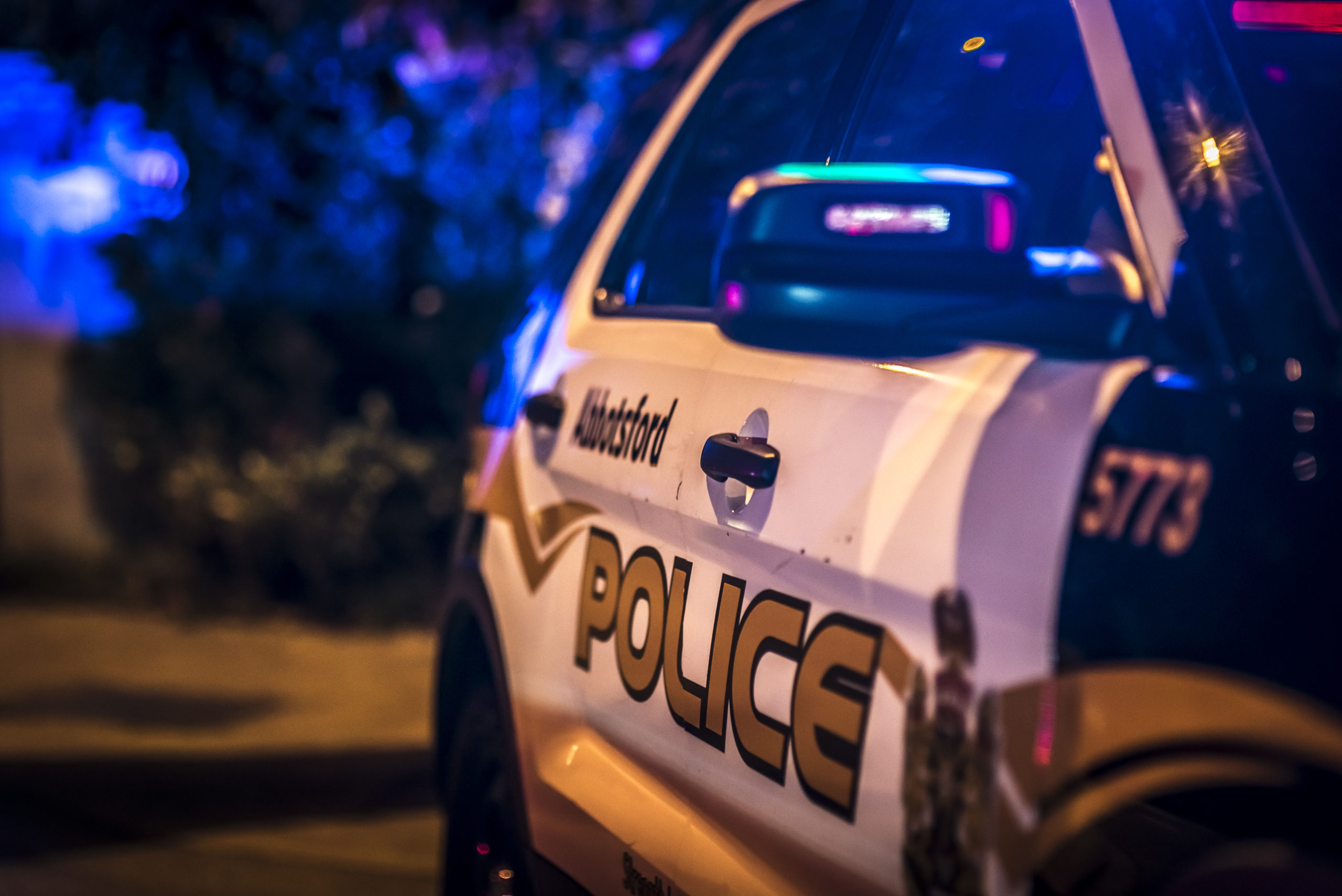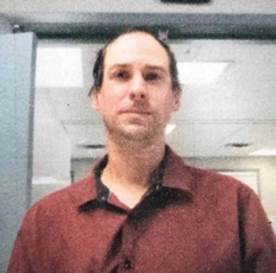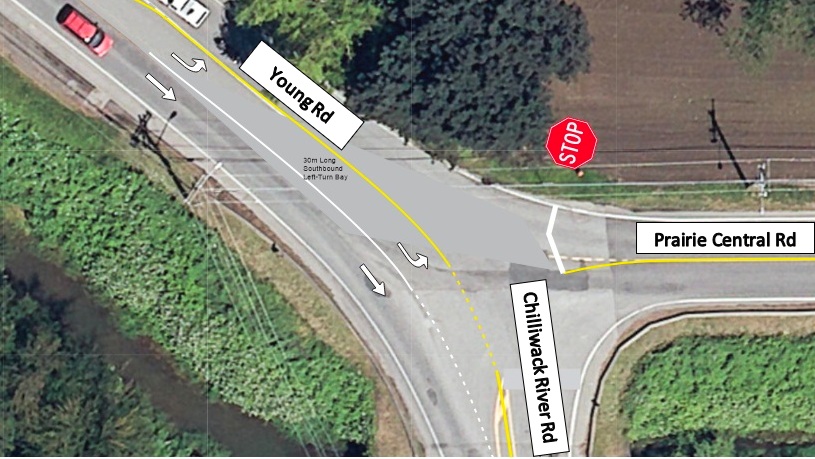Fraser Valley– Whatever the politics of the day, we will always need water. The election offers an opportunity to reflect on issues of federal jurisdiction that impact on our use and enjoyment of the water that underpins Canadian quality of life.
In a survey of Chilliwack-Hope candidates WaterWealth focused on the Our Living Waters national strategy, the Trans Mountain Pipeline Expansion Project (a project using a route that lies over the aquifer Chilliwack uses for drinking water and that is currently before the National Energy Board), the concept of an inter-jurisdictional land use plan for the Lower Fraser watershed, and reconciliation of the Crown/First Nations Relationship.
WaterWealth’s Candidate Survey takes the form of a series of five issues presented with background information on each followed by a question for the candidate. The issues and questions presented relate to long-term protection of our shared water wealth in Chilliwack-Hope, BC, and across the country. Answer options provided to the candidates included a place to indicate yes/no and space for the candidate to expand on their answer.
Candidate responses to the survey are presented here as received and without commentary.

1. Our Living Waters
Background: Reliability of water supply is an increasingly important consideration for business and industry in deciding where to make investments, establish operations and create jobs. Water is also deeply embedded in Canadian identity and culture. Yet we are in an era of unprecedented change and face growing complexity and uncertainty over water quality and quantity.
Three-quarters of Canadians believe water degradation will become an ever more serious problem in the next 10 years unless we apply substantial expertise and skills to improving its management1. Drought and wildfires in 2015 have driven home this concern even within Chilliwack-Hope, impacting people, their homes, and businesses.
Our Living Waters is a national strategy with the goal of all waters in Canada in good health by 2025. Our Living Waters was endorsed by over 80 organizations and 100 individuals at the second biennial Living Waters Rally in Gatineau, Quebec in Fall 2014. Canadians and Canadian organizations are being asked to sign on to a call to action for the next government of Canada.
Call to Action text at http://bit.ly/1QulT2F
Sign-on available at http://olw-freshwateralliance.nationbuilder.com/call-to-action
Question: As a resident who shares the waters all of us in Chilliwack-Hope rely on, will you personally endorse the Our Living Waters Call to Action?
Responses:
 Mark Strahl
Mark Strahl
No response
![]() Thomas Cheney
Thomas Cheney
Yes.
 Louis De Jaeger
Louis De Jaeger
Yes.
 Alexander Johnson
Alexander Johnson
No. I feel this has a lot of good will behind it but realistically, what is the plan? If it’s just to create a National Board who will implement more Federal control using Tax Dollars to pay for something Provinces and Municipalities are able to do, then I don’t see the point.
As mentioned, there are already organizations working on this issue, the last thing we need is to have the expensive and slow Federal Government step into the ring.
The Libertarian Party would protect property rights instead of giving the Government the ability to use your land when it feels it is for the greater good. What this means, is that in the event the LPoC was in charge, we would allow people to be protected from their waters being poisoned or tampered with by foreign entitites.
To give Federal Government more control because the idea that Nationalizing an issue will cure it only strengthens their argument that we need bigger Government to keep us safe and happy. I don’t see nationalizing this as a better approach.
![]() Dorothy-Jean O’Donnell
Dorothy-Jean O’Donnell
Yes. I have just signed the petition. The utter disgrace that hundreds of indigenous communities in Canada have been under boil water advisories for years on end must be put to an end. We need to go all out to defeat the government and bring about the changes favourable to the people.
![]() Seonaigh MacPherson
Seonaigh MacPherson
Yes. I was told that as a candidate in an election, it is not legal to sign pledges; however, I will answer “personally” as you suggest to say that I do believe the government is entrusted to protect Canadian waters, that the NDP has a strong position on this, and that It is a high priority for me personally.

2. Trans Mountain Pipeline Route
Background: The Trans Mountain pipeline spans the full width of the Chilliwack-Hope riding. Entering at the most northern corner of the riding along the Coquihalla River, the pipeline follows the Coquihalla River, then the Fraser River, before crossing the City of Chilliwack, the Vedder River, and Sumas Prairie.
From about Bridal Veil Falls Provincial Park to Sumas Prairie is a 30 kilometre section of the pipeline route Trans Mountain identified as being over “highly vulnerable aquifer”. It includes the aquifer that the City of Chilliwack uses for its water supply, the pipeline route even intersecting city well capture zones. Regarding the aquifer, the City of Chilliwack letter of comment in the National Energy Board hearing for the Trans Mountain pipeline expansion project said “Once contaminated, it is unlikely that the aquifer could be remediated adequately to use for drinking water purposes again.” The pipeline also crosses the aquifer the city plans to use for future growth.

Chilliwack drinking water would be best protected by moving the existing 60+ year old Trans Mountain pipeline north away from city wells and, if the expansion project proceeds, by placing the new pipeline further north as well. Such a route change would also serve to move the pipeline away from the Vedder Mountain Fault, reducing seismic risk to the pipeline where it crosses the Vedder River.
The federal cabinet can request that the National Energy Board (NEB) reconsider conditions placed on the project in the event of a recommendation of approval from the NEB.
Question: If elected and if the NEB does not require a route change away from Chilliwack’s water source, will you seek to have cabinet request that the NEB reconsider its conditions to include such a route change?
Responses:
 Mark Strahl
Mark Strahl
No response
![]() Thomas Cheney
Thomas Cheney
Yes. Will oppose expansion of pipelines due to climate change concerns
 Louis De Jaeger
Louis De Jaeger
Yes. We believe that energy infrastructure projects must earn the trust of communities, respect and uphold Indigenous rights, nor can they place our lands, waterways, and ecosystems at risk. Unfortunately our assessment process for these projects has become increasingly paralyzed and lack public trust. We believe that Canada needs clear and efficient processes that have reasonable, even- handed rules, clear beginning and ending points, and decisions that can be relied on. That is why we have announced in our platform that a Liberal government will launch an immediate, public review of Canada’s environmental assessment processes. Based on this review, a Liberal government will replace Mr. Harper’s changes to the environmental assessment process – with a new, comprehensive, timely, and fair process that:
– Restores robust oversight and thorough environmental assessments – which have been gutted by this Conservative government – of areas under federal jurisdiction, while also working with provincial and territorial governments to ensure that processes are not duplicated;
-Ensures decisions are based on science, facts, and evidence, and serve the public’s interest;
-Provides ways for interested Canadians to express their views and for experts to meaningfully participate in assessment processes; and
-Requires project proponents to choose the best technologies available to reduce environmental impacts.
As part of this review, we will modernize and rebuild trust in the National Energy Board. We will ensure it has broad regional representation and sufficient expertise in fields such as environmental science, community development, and Indigenous traditional knowledge. We will stop the practice of having federal Ministers interfere in projects while they are being assessed. We will explore, consult, and work collaboratively to move towards a system where federal environmental assessments of projects include an analysis of upstream impacts and the greenhouse gas emissions resulting from the projects being assessed. We will explore, consult, and work collaboratively to move towards a system where federal environmental assessments of projects include an analysis of upstream impacts and the greenhouse gas emissions resulting from the projects being assessed.
As mentioned prior, we will, in full partnership and consultation with First Nations, Inuit, and Métis Peoples, undertake a full review of regulatory law, policies, and operational practices. This will ensure that the Crown is fully executing its consultation, accommodation, and consent obligations on project reviews and assessments, in accordance with its constitutional and international human rights obligations. These include Aboriginal and Treaty rights and the United Nations Declaration on the Rights of Indigenous Peoples. We recognize the relationship between Indigenous Peoples and the land, and will respect legal traditions and perspectives on environmental stewardship.
We have also committed to smarter co-management of our oceans, by working with the provinces, Indigenous Peoples, and other stakeholders. We will develop plans that not only make best use of our marine resources, but give coastal communities more say in managing the resources around them.
An important first step will be the formalization of the moratorium on crude oil tanker traffic on British Columbia’s North Coast, including the Dixon Entrance, Hecate Strait, and Queen Charlotte Sound, to ensure that ecologically sensitive areas and local economies are protected from the potentially devastating impacts of a spill.
 Alexander Johnson
Alexander Johnson
Yes. Firstly, I would want to abolish the National Energy Board, but in the event that wouldn’t possibly happen; I would request that the National Energy Board asks the people of Chilliwack what they would like and completely abide by their wishes.
A small group of Politicians in Ottawa cannot make as good a decision for those in this district as the citizens of Chilliwack and Hope can make for themselves.
![]() Dorothy-Jean O’Donnell
Dorothy-Jean O’Donnell
Yes. I am opposed to the pipeline expansion because I do not think that the powers that be have done anything like a serious analysis of the risks let alone provide decision-making input from the First Nations affected.
These pipelines for export also raise the question of why these resources are not developed here to establish manufacturing and benefit the people in Chilliwack-Hope and across the country.
![]() Seonaigh MacPherson
Seonaigh MacPherson
Yes. The NDP does not support the TransMountain Pipeline extension as proposed because the current system for assessing risks and social license is deeply flawed in our opinion. So, as part of an NDP government, we would revisit the process altogether. If elected as your MP without a majority NDP government facing the status quo (potentially), I would be a very, very strong advocate to change the route given our vulnerabilities, not the least of which is that this is an earthquake zone and the pipleline would go under my local Elementary school, along our aquifers, and under the Vedder River where I live and so many in our community like to congregate with family, friends, and dogs!

3. Trans Mountain Pipeline Integrity
Background: In 2012 the National Energy Board ordered Kinder Morgan to conduct in-line inspections of the Trans Mountain pipeline (inspections using tools that run inside the pipe). Following two leaks in 2013 that the in-line inspection equipment had missed, inspection results were reevaluated. From an Access to Information request2 we know that as a result of that reevaluation 119 features serious enough to warrant excavation for inspection/repair were identified in the Hargrieves to Darfield section of the pipeline. We also know that at least 33 features meeting Kinder Morgan’s dig criteria were found in the Kamloops to Sumas section of the pipeline. Many excavations of the pipeline have been observed in the Coquihalla Canyon and along Highway 1 to approximately five kilometres east of Bridal Veil Falls Provincial Park. In-line inspections of the entire pipeline, including the section over Chilliwack’s aquifers, were to have been completed by the end of 2014. To date no excavations have been done between Bridal Veil Falls Provincial Park and Abbotsford. Chilliwack residents are concerned about the security of their water supply and wonder why no excavations for inspection or maintenance have been done here when so many have been done in less populated areas of the pipeline route.
Question: If elected, will you request and make public the in-line inspection results from the Trans Mountain pipeline where it crosses Chilliwack so that residents can evaluate for themselves the risk to their drinking water?
Responses:
 Mark Strahl
Mark Strahl
No response
![]() Thomas Cheney
Thomas Cheney
Yes.
 Louis De Jaeger
Louis De Jaeger
Yes. To protect these valuable natural resources, we will deliver more robust and credible environmental assessments for all projects that could impact our freshwater and oceans, this includes transparency in reporting of inspections and public access to information.
 Alexander Johnson
Alexander Johnson
Yes. I think anytime tax payer money is used for any study that the people have a right to see the results of what they are paying for.
![]() Dorothy-Jean O’Donnell
Dorothy-Jean O’Donnell
Yes. Accountability with regard to all aspects of pipeline maintenance and protections against disasters must be a top priority of the public authority.
![]() Seonaigh MacPherson
Seonaigh MacPherson
Yes. I will do my best to do so, though I don’t know as yet the restrictions I may face doing so as a Parliamentarian.

4. Lower Fraser River Watershed Land Use Planning
Background: The Fraser River is a major cultural, ecological and economic feature of the Chilliwack-Hope riding. Through the 20th century and continuing today, as population and industrial development grew, biological productivity of the Lower Fraser watershed has declined sharply. The BC Conservation Data Centre lists 296 species at risk in the Lower Mainland. Sturgeon populations have declined such that only catch and release fishing is allowed; eulachon, once an important fishery, have all but disappeared; salmon populations are struggling, with returns frequently below estimates. Farm land in the Lower Fraser is also being lost. The Fraser Valley saw a net loss of 5,097 hectares from the Agricultural Land Reserve between 1974 and 2014, according to the Agricultural Land Commission 2013/2014 Annual Report. Neighbouring Metro Vancouver lost 5,928 hectares.
Conflicting values relating to use of the Fraser River and surrounding lands increasingly result in residents of the region being forced to campaign against developments and activities perceived to threaten the health of the region. Examples of such conflict include in-river gravel mining; hazardous waste; coal, natural gas, and jet fuel terminals; highway expansion; and conflicts over culturally sensitive locations. These conflicts contribute to uncertainty for residents and industry.
For over a decade the need for collaborative and coordinated management of development in the Lower Fraser has been recognized. The now defunct Fraser River Environmental Management Program once provided some degree of coordination, primarily toward the Fraser estuary. The Fraser Basin Council is currently facilitating an inter-jurisdictional, collaborative and integrated Lower Mainland Flood Management Strategy. Similar coordinated planning is needed to effectively manage development in the region so that residents can be assured that a long-term vision for the region is being developed and that the quality of life we enjoy will not continue to be eroded piecemeal by a continuous onslaught of projects evaluated in isolation.
Question: If elected will you support development of a collaborative, integrated, inter-jurisdictional land use plan for the Lower Fraser, from Hope to the estuary?
Responses:
 Mark Strahl
Mark Strahl
No response
![]() Thomas Cheney
Thomas Cheney
Yes.
 Louis De Jaeger
Louis De Jaeger
Yes. We will treat our freshwater as a precious resource that deserves protection and careful stewardship. We will work with other orders of government to protect Canada’s freshwater using education, geo-mapping, watershed protection, and investments in the best wastewater treatment technologies.
To protect our freshwater ecosystems, we will renew our commitment to protect the Great Lakes, the St. Lawrence River Basin, and the Lake Winnipeg Basin. We will also act on the recommendations of the Cohen Commission on restoring sockeye salmon stocks in the Fraser River.
To aid in making the best possible decisions, we will restore $1.5 million in annual federal funding for freshwater research – a program that was cut by the Conservatives – and make new investments in Canada’s world-leading IISD Experimental Lakes Area.
 Alexander Johnson
Alexander Johnson
No. This again is something that the Federal Government doesn’t need to be a part of. This is a Provincial issue. If the people of BC want to go ahead with such a plan, I support their right to make that decision. But I do not advocate more Federal ability to take money from someone involuntarily to pay for something. If it wasn’t the Government, we’d call that theft.
![]() Dorothy-Jean O’Donnell
Dorothy-Jean O’Donnell
Yes.
![]() Seonaigh MacPherson
Seonaigh MacPherson
Yes. In addition, I’ve proposed a model for coordinating sustainable development of the region across river management, agricultural land use, infrastructure development, social programs, children, seniors, and housing around the idea of developing Chilliwack-Hope and the Fraser Valley as a “Healthy Living Destination.” I do this understanding that only when we understand our intersecting environmental, economic, and social investments and interests in maintaining a healthy environment can we direct programs and funding to this end. An NDP government will bring much to the table to support this kind of sustainable development.

5. Crown/First Nations Relationship
Background: Many disputes between Canada or provinces and First Nations relate to water, whether the state of drinking water supplies and sewage systems, access to or routes across water, impacts of industrial projects on water, or jurisdiction over water.
2015 marks the 25th anniversary of the Oka crisis, an event that led to the Royal Commission of Aboriginal Peoples. The final volume of the Commission’s report, issued in 1996, was titled “Renewal: A Twenty-Year Commitment”.
2015 also marks the 10th anniversary of the 2005 “New Relationship” agreement between British Columbia and First Nations, an agreement that set out a vision statement, goals, principles and action plans of a new relationship.
In 2008 the Truth and Reconciliation Commission was organized by parties to the Indian Residential Schools Settlement Agreement. The Truth and Reconciliation Commission called upon the government of Canada to fully adopt and implement the United Nations Declaration on the Rights of Indigenous Peoples as the framework for reconciliation. It further called upon the Government of Canada to develop a national action plan, strategies, and other concrete measures to achieve the goals of the United Nations Declaration on the Rights of Indigenous Peoples.
September 2015 saw the 2nd Annual BC Cabinet-First Nations Leaders Gathering, meetings arranged after the Supreme Court of Canada’s Tsilhqot’in Decision. A document prepared for the gathering, titled “British Columbia – First Nations Proposed Commitment Document 2015”, signed by BC Minister of Aboriginal Relations and Reconciliation John Rustad and representatives of the First Nations Leadership Council promised more visioning, principles, goals and objectives, processes and structures, and systemic supports for advancing the Crown‐First Nation relationship.
And yet the words of Pacific Metis Federation President Norman Evans, noted in Highlights from the Report of the Royal Commission on Aboriginal Peoples, remain as true today as they were 19 years ago when the Commission issued its “Twenty-Year Commitment”:
“We are getting sick and tired of the promises of the federal government. We are getting sick and tired of Commissions. We are getting sick and tired of being analyzed… We want to see action.”
Conflicts such as that in progress now where members of Ahousaht First Nation are preventing anchoring of a Cermaq salmon farm North of Tofino, or the conflict brewing in the Dasiqox Tribal Park in Tsilhqot’in territory where BC-based mineral exploration company Amarc is set to begin a drilling program against the wishes of the Xeni Gwet’in and Yunesit’in put lie to federal and provincial promises. Such conflicts, that result in direct action and/or court proceedings, are expensive for all concerned, heighten uncertainty for industry, and further erode rather than build the trust needed to ever achieve true reconciliation.
Canadians need truth in leadership for reconciliation to occur. We cannot let issues that predate confederation stand in the way of finding solutions to 21st century complexities such as changing climate which is already having profound ecological and economic impacts such as altering the distribution and availability of water, the life-blood of BC.
Question: If elected will you make it a priority to personally build relationships with First Nations upon whose territory the Chilliwack-Hope riding rests, and to raise public awareness and understanding of the unique and important nature of the relationship between First Nations and the Crown?
Responses:
 Mark Strahl
Mark Strahl
No response
![]() Thomas Cheney
Thomas Cheney
Yes. I will work to have aboriginal title proactively recognized.
 Louis De Jaeger
Louis De Jaeger
Yes. We will undertake, in full partnership and consultation with First Nations, Inuit, and the Métis Nation, a full review of laws, policies, and operational practices. This will ensure that on project reviews and assessments, the Crown is fully executing its consultation, accommodation, and consent obligations, in accordance with its constitutional and international human rights obligations, including Aboriginal and Treaty rights and the United Nations Declaration on the Rights of Indigenous Peoples.
 Alexander Johnson
Alexander Johnson
No. I think the best people to speak about their relationship with the Crown would be the Aboriginals. The Crown would be best to speak of their relationship with the Aboriginals. A Politician will only get in the way of communication between those communities. Personally, I would respect the sovereignty that the Aboriginals should have, but politically I wouldn’t waste tax payers dollars on a campaign to boost any image. I already respect people for who they are; becoming a Politician wouldn’t change who I am.
![]() Dorothy-Jean O’Donnell
Dorothy-Jean O’Donnell
Yes. The MLPC stands for nation-to-nation relations with First Nations and acknowledgement that this is unceeded Sto:lo territory.
![]() Seonaigh MacPherson
Seonaigh MacPherson
Yes. High priority for myself and for the NDP. We have committed to developing a relationship with First Nations based on a nation-to-nation basis, which will respect their ability to maintain sovereignty and impact decisions in areas critical to their sustainable development as a nation. I’ve met and received support from many of the senior leaders (Chiefs) and elders in the community to this end.
![]()
Further to the question of Crown/First Nations relationship, the Union of BC Indian Chiefs has published an updated Summary of 2015 Election Commitments on First Nations.
1RBC Water Attitudes Study 2013
http://www.rbc.com/community-sustainability/environment/rbc-blue-water/water-attitude-study.html
2 Kinder Morgan Engineering Assessment EA-TM-2014-004, March 14, 2014






